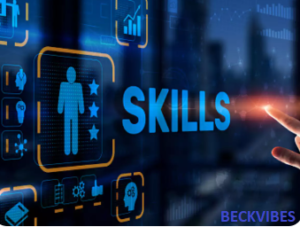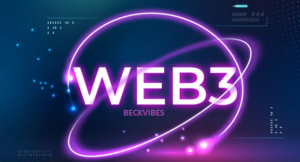
How To Become An AI Engineer From Scratch in 2024 The dawn of Artificial Intelligence (AI) has transformed industries, pushing the boundaries of what machines can do and how humans interact with them. As we move further into the 2024 horizon, the demand for skilled AI engineers continues to surge, offering enticing career opportunities for those who are ready to dive into this innovative field. But how does one start a career in AI engineering from scratch? This comprehensive guide walks you through the steps needed to embark on this exciting journey.
Understanding the Basics of Artificial Intelligence
Beginning your quest to become an AI engineer requires laying a foundational understanding of Artificial Intelligence. AI fundamentally involves devising models and algorithms that empower machines to execute tasks which generally necessitate human-like intelligence. These tasks span across learning, reasoning, problem-solving, perception, and understanding language.
Diving into the realm of AI, it’s important to immerse yourself in its history, the trajectory of its evolution, and how it’s being applied innovatively across various sectors including healthcare, automotive, finance, and entertainment today. A critical aspect of your foundational knowledge should also include the ethical considerations of AI technology and its broader societal impacts. To equip yourself with these insights, leverage a mix of educational resources such as online courses, academic textbooks, and engaging seminars. These platforms offer a holistic view of AI’s basics, preparing you for a deeper exploration of this field.
Acquiring the Necessary Technical Skills
The journey into AI engineering is underpinned by a solid foundation in key technical disciplines. Mathematics, statistics, and a thorough understanding of computer science are paramount. Delving into programming, aspiring AI engineers should prioritize gaining proficiency in languages such as Python—renowned for its accessibility and rich library ecosystem supporting AI and ML tasks—alongside R, Java, and C++. The exploration of algorithms and AI models necessitates a deep dive into mathematical domains like linear algebra, calculus, and probability, highlighting the significant role of statistical knowledge in algorithm development and data analysis.
Gaining Specialized Knowledge in AI
Diving deeper into the AI landscape necessitates specializing in distinct areas that are pivotal to AI engineering. This phase of your journey is about exploring machine learning, where you’ll differentiate and apply various learning algorithms to solve specific tasks. Deep learning, a subset of machine learning, demands an understanding of neural networks and practical experience with tools like TensorFlow or PyTorch. In natural language processing (NLP), you’ll tackle how to program computers to process and analyze large amounts of natural language data. The realm of computer vision invites you to develop algorithms that allow computers to interpret and understand the visual world. Meanwhile, robotics focuses on creating robots capable of performing tasks with a degree of autonomy. Each of these specializations offers a gateway to understanding the diverse challenges and applications within AI.
Building Real-World AI Projects
The practical application of AI theories through real-world projects is indispensable for aspiring AI engineers. Begin by tackling simple tasks that solidify your understanding, such as devising a straightforward chatbot or crafting an elementary image recognition tool. These initial steps serve as a crucial foundation, paving the way for more intricate challenges. How To Become An AI Engineer From Scratch in 2024, as your skills and confidence grow, escalate the complexity of your projects to include sophisticated algorithms and applications. Immersing yourself in hackathons and competitions emerges as an invaluable experience, exposing you to diverse problems and innovative solutions. Moreover, contributing to open-source AI projects not only sharpens your technical abilities but also connects you with a community of like-minded individuals.
Networking and Continuing Education
Networking and continuing education are pivotal for those venturing into the dynamic world of AI engineering. Engaging with the AI community is critical; join online forums, participate in AI-related social media groups, and attend industry conferences to immerse yourself in the latest AI developments and innovations. These interactions not only provide insights into emerging trends and technologies but also open avenues for collaboration and mentorship.
Pursuing advanced education further enriches your AI engineering prowess. Specialized certifications and degrees, especially those focusing on AI and machine learning, are invaluable for staying ahead in the field. Renowned universities and digital platforms offer tailored courses that are both flexible and industry-recognized, catering to the evolving needs of AI professionals. This combination of networking and continuous education ensures you remain at the forefront of AI advancements, ready to embrace new challenges and opportunities in the ever-changing landscape of AI engineering.
How To Become An AI Engineer From Scratch in 2024? Becoming an AI engineer from scratch in 2024 requires a blend of formal education, self-learning, practical experience, and continuous skill development. Here’s a step-by-step guide to help you navigate this journey:
1. Foundation in Mathematics and Computer Science
- Mathematics: Gain a strong understanding of linear algebra, calculus, probability, and statistics. These are essential for understanding machine learning algorithms.
- Computer Science: Learn the fundamentals of programming (Python is highly recommended), data structures, algorithms, and computer architecture.
2. Formal Education
- Degree: Consider pursuing a bachelor’s degree in Computer Science, Mathematics, Data Science, or a related field. While not mandatory, it provides a strong foundation.
- Online Courses: Platforms like Coursera, edX, and Udacity offer specialized AI and machine learning courses from top universities and institutions.
- Recommended Courses:
- Machine Learning by Andrew Ng (Coursera)
- Deep Learning Specialization (Coursera)
- AI For Everyone (Coursera)
- Deep Learning Nanodegree (Udacity)
- Recommended Courses:
3. Programming Skills
- Python: Master Python, the most popular language for AI development, due to its simplicity and extensive libraries.
- Libraries and Frameworks: Learn to use AI and ML libraries and frameworks like TensorFlow, PyTorch, Keras, Scikit-Learn, and OpenCV.
4. Build a Strong Knowledge Base
- Machine Learning: Study supervised and unsupervised learning, reinforcement learning, and neural networks.
- Deep Learning: Delve into convolutional neural networks (CNNs), recurrent neural networks (RNNs), generative adversarial networks (GANs), and natural language processing (NLP).
- Data Handling: Learn data preprocessing, cleaning, and transformation techniques. Gain proficiency in using tools like Pandas and NumPy.
5. Practical Experience
- Projects: Work on real-world projects to apply your knowledge. Use datasets from sources like Kaggle and UCI Machine Learning Repository.
- Competitions: Participate in machine learning competitions on platforms like Kaggle to solve problems and gain experience.
- Internships: Look for internships in companies that focus on AI and machine learning to gain industry experience.
6. Advanced Topics and Research
- Specialized Areas: Explore advanced topics such as computer vision, NLP, reinforcement learning, and AI ethics.
- Research Papers: Read and analyze research papers from conferences like NeurIPS, ICML, and CVPR to stay updated with the latest advancements.
7. Networking and Community Involvement
- Online Communities: Join AI and ML communities on platforms like GitHub, Stack Overflow, Reddit, and LinkedIn.
- Conferences and Meetups: Attend AI conferences, webinars, and local meetups to network with professionals and learn from experts.
8. Continuous Learning and Improvement
- Books and Resources: Read seminal books such as “Deep Learning” by Ian Goodfellow, “Pattern Recognition and Machine Learning” by Christopher Bishop, and “Artificial Intelligence: A Modern Approach” by Stuart Russell and Peter Norvig.
- Blogs and Podcasts: Follow AI blogs, podcasts, and YouTube channels to keep up with trends and developments.
9. Certification and Specialization
- Certifications: Obtain certifications from recognized institutions to validate your skills. For example, Google AI and ML certification, AWS Machine Learning certification, etc.
- Specialization: As you progress, consider specializing in a particular domain within AI, such as robotics, healthcare, finance, or autonomous systems.
10. Job Search and Career Advancement
- Portfolio: Build a portfolio showcasing your projects, Kaggle rankings, and any contributions to open-source projects.
- Resume and Interviews: Prepare a strong resume and practice for technical interviews. Highlight your practical experience, projects, and any publications or presentations.
- Career Path: Apply for entry-level positions such as AI Engineer, Machine Learning Engineer, Data Scientist, or Research Scientist. Continue advancing by taking on more complex projects and roles.
By following these steps, you can systematically build the skills and experience needed to become a proficient AI engineer. Remember, the field of AI is constantly evolving, so staying curious, adaptable, and proactive in learning is key to long-term success.








